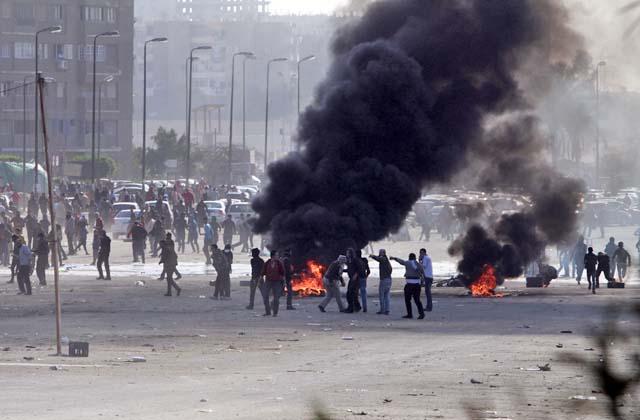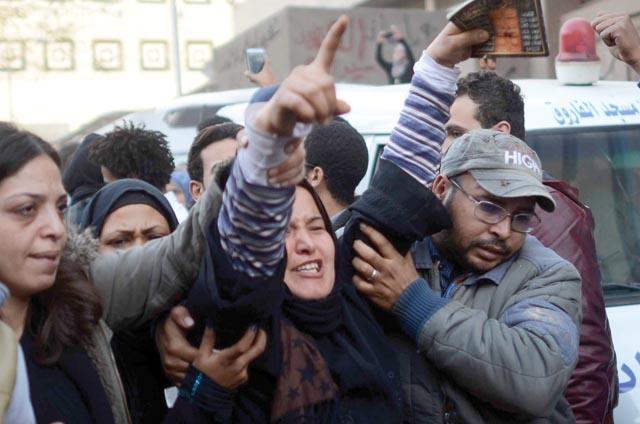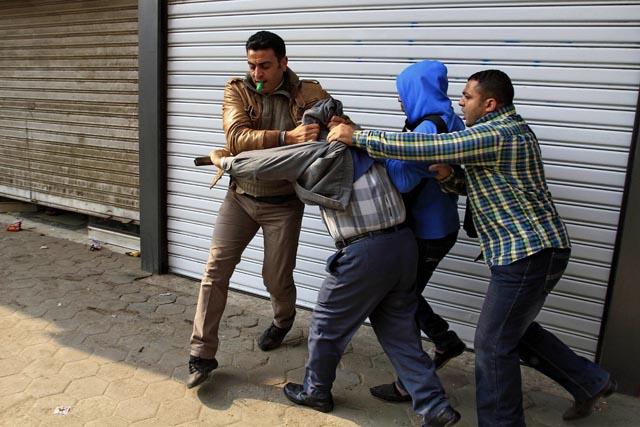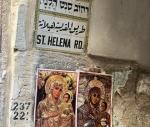CAIRO — At least 29 people were killed in clashes in Egypt Saturday during rival rallies on the anniversary of the 2011 revolt that toppled Hosni Mubarak.
Three years after Egyptians rose up to demand the overthrow of Mubarak, thousands of demonstrators in Cairo’s Tahrir Square chanted slogans backing another military man, Gen. Abdel Fattah Al Sisi, as police clashed with Islamists and activists elsewhere.
At least 29 people were killed nationwide when police and supporters of the military-installed government clashed with Islamist backers of president Mohamed Morsi, who was deposed in July after a single turbulent year in power.
Egypt was already on edge after four bombs exploded in Cairo on Friday, including a massive blast outside police headquarters.
The attacks, which were claimed by a Sinai-based extremist group, killed six people.
Hours before Saturday’s rallies, a small bomb outside a police training centre in north Cairo wounded one person, and another 16 were killed when a car bomb exploded next to a police base in the canal city of Suez, according to the health ministry.
Ansar Beit Al Maqdis, an Al Qaeda-inspired group, claimed Friday’s bombings, all of which targeted police, and urged ordinary Egyptian “Muslims” to stay away from police buildings.
Police deployed across Cairo as supporters of Morsi launched small counter-demonstrations to the commemorations called by the authorities, which were concentrated in Tahrir.
At least 29 people were killed in street clashes, 26 of them in Cairo and its suburbs, where Islamists and anti-government protesters fought with police and civilian opponents, health ministry spokesperson Ahmed Kamel told AFP.
Another 725 suspected protesters were arrested, according to police officials.
One of the dead in Cairo was a member of the April 6 movement, which spearheaded the uprising against Mubarak and had also opposed Morsi, a member of the group told AFP.
“The regime has substantial and now energised support, a majority of the politically active citizens of this country,” said Michael Hanna, an expert on Egypt with The Century Foundation, a US-based think tank.
“But there are still resilient sources of opposition that they are choosing to deal with violently.”
Police, who have killed hundreds of Islamist protesters in street clashes since Morsi’s overthrow, have vowed to halt all such demonstrations.
But they have encouraged Egyptians to turn out in support of the government, and some politicians called for rallies to back Sisi, the general who overthrew Morsi and whose popularity has skyrocketed among Egyptians craving stability after three years of turmoil.
In the restive Sinai Peninsula, meanwhile, five Egyptian soldiers were killed in a helicopter crash in a region where militants have killed scores of police officers and soldiers. The cause of the crash was under investigation.
Calls to execute the Brotherhood
Mubarak, who ruled for three decades, was forced to step down on February 11, 2011 after 18 days of demonstrations that left some 850 people dead, ending his three-decade rule.
The military took power until Morsi’s election in June 2012, but then toppled him a year later after millions took to the streets demanding his resignation, accusing him of betraying the “revolution” that toppled Mubarak.
In Tahrir on Saturday, tanks guarded the entrances to the square as demonstrators waved Egyptian flags and carried posters of Sisi.
“The people demand the execution of the Brotherhood,” demonstrators chanted, as several took their pictures with police officers, soldiers and tanks.
Government and military officials have hinted for days that the turnout at Saturday’s pro-government rallies could be a bellwether for a run by Sisi in a presidential election promised for later this year.
Sisi is widely seen as a strongman who can restore order and fight militancy, which the interim government blames on Morsi’s Muslim Brotherhood.
The Brotherhood, which renounced violence decades ago and won a series of elections following Mubarak’s overthrow, condemned Friday’s bomb blasts, as they have previous attacks on the police and army.
But after an attack on a police building in December, also claimed by Ansar Beit Al Maqdis, the authorities declared the Brotherhood a “terrorist organisation”, making even expressions of verbal support punishable by heavy prison sentences.
Security forces have waged a bloody crackdown since Morsi’s overthrow that has seen at least 1,000 people killed and thousands of Islamists arrested, including virtually the entire top Brotherhood leadership. Morsi has also been jailed.
Rights group Amnesty International said there had been “state violence on an unprecedented scale over the last seven months”.


















